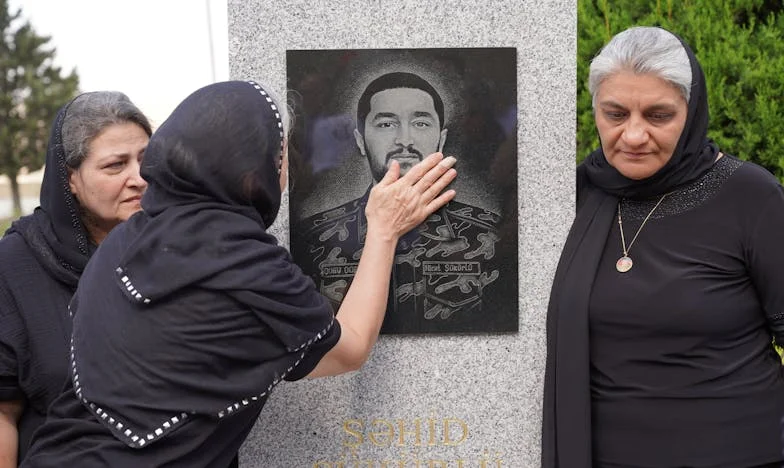The Day I Finally Said “No” to My Mother-in-Law
“No. She’s not coming here, not this weekend, not next month. I can’t do it anymore, Tom.”
The words tumbled out of me before I could stop them, filling our tiny kitchen with a finality that even I didn’t expect. Tom stood across the table, spatula in hand, scrambled eggs burning in the pan behind him. He blinked at me, as if he’d misheard. “What do you mean, Rachel? It’s just for a few days. Mom misses us. She misses the kids.”
I clenched my mug so tight my knuckles turned white, heat from the coffee seeping into my palms. “It’s never just a few days. It’s never just a visit. Every time she comes, I feel like a guest in my own home.”
He sighed, turning back to the stove, scraping burnt eggs onto a plate. I watched him, my heart pounding against my ribs. I’d never stood my ground before—not really. For seven years, I’d played the role. I’d smiled through her comments about how I kept the house, the way I raised Lily and Max, the meals I cooked. I’d sat through her passive-aggressive sighs when I put Lily in time-out for yelling, or when I let Max have pizza for breakfast on a Saturday. I’d let her rearrange my pantry, refold my laundry, and critique my parenting, always with that saccharine smile—“I’m just trying to help, honey.”
But last Thanksgiving, everything changed. She’d arrived three days early, suitcases thumping on the hardwood while I was still in my pajamas, hair wild. She’d swept in, commandeering the kitchen, barking orders about the turkey and the stuffing, telling me how my cranberry sauce was too tart and the gravy too thin. I’d spent the whole holiday on edge, crying in the bathroom while she held court in my living room, telling stories about Tom’s ex-girlfriend who “used to bake the best pies.”
After she left, I told Tom I needed a break. He nodded, but I could see the hurt in his eyes. “She’s my mom, Rach. She means well.”
But what about me? Did anyone care if I was drowning?
Now, just three months later, he was back at it, asking—no, begging—me to let her stay for a week. I could already feel her presence, judging, rearranging, making me small in my own home.
“I said no,” I repeated, softer but firmer. “I can’t do it again.”
Tom’s jaw clenched. “So you’re just going to keep her away from her grandkids? From me?”
The kids burst into the kitchen, Lily clutching her stuffed unicorn, Max dragging his blanket. I forced a smile, ruffled their hair, poured cereal. But the air was thick with tension, Tom’s silence louder than a shout.
Later that night, after the kids were asleep, we sat in that same kitchen, shadows from the streetlight pooling on the linoleum. Tom finally spoke, his voice tired. “She’s lonely, Rach. Dad’s gone, she doesn’t have anyone else. What’s it going to hurt, just for a few days?”
“What’s it going to hurt?” My voice broke. “Me, Tom. It hurts me. Every time she comes, I feel like I’m failing. Nothing is ever good enough for her. And you—you never stand up for me. You just let her say and do whatever she wants.”
He flinched. “That’s not fair.”
“Isn’t it?” I wiped my eyes, hating how weak I sounded. “I know she’s your mom. I know you love her. But I’m your wife. I need you to have my back. Just once.”
He looked away, jaw working, fingers drumming on the table. “You want me to choose.”
“No. I just want you to understand.”
We sat in silence. I thought of all the times I’d swallowed my needs, my pride, just to keep the peace. How many women had done the same? How many homes were battlegrounds, not because of hate, but because of love stretched too thin between generations?
The next morning, Tom handed me his phone, a text from his mom blinking on the screen: “Can’t wait to see you all next weekend! Tell Rachel I’ll bring my famous apple pie.”
I stared at the words, bile rising in my throat. “Did you already tell her she could come?”
He looked sheepish. “She was so excited. I thought maybe you’d change your mind.”
I stood, voice shaking. “I’m not doing this, Tom. If she comes, I’m taking the kids and leaving for the weekend.”
He stared at me, stunned. “You don’t mean that.”
I nodded, tears streaming down my face. “I do. I have to mean it.”
The next few days were a blur. Tom sulked, the kids asked why Daddy was so grumpy. I went through the motions, but everything felt brittle, like one wrong move would shatter us. I called my sister, sobbing into the phone. “Am I being selfish?”
She was quiet. “No. You’re setting a boundary. That’s not selfish. That’s survival.”
The day before his mom was supposed to arrive, Tom finally spoke. “I told her not to come. She’s mad. She says I’m choosing you over her.”
I reached for his hand. “You’re choosing us. Our family. Isn’t that what we promised when we got married?”
He squeezed my hand, but his eyes were sad. “She won’t forgive me.”
I didn’t have the heart to tell him I wasn’t sure I cared anymore.
That weekend, we didn’t talk much. We took the kids to the park, ate ice cream, played board games. For the first time in a long time, I felt like I could breathe in my own home.
But at night, I lay awake, staring at the ceiling, wondering: Was I the villain in someone else’s story? Or was I finally the hero of my own?
Have you ever had to choose between peace in your home and pleasing your family? Did you stand your ground—or give in, just to keep the peace?
